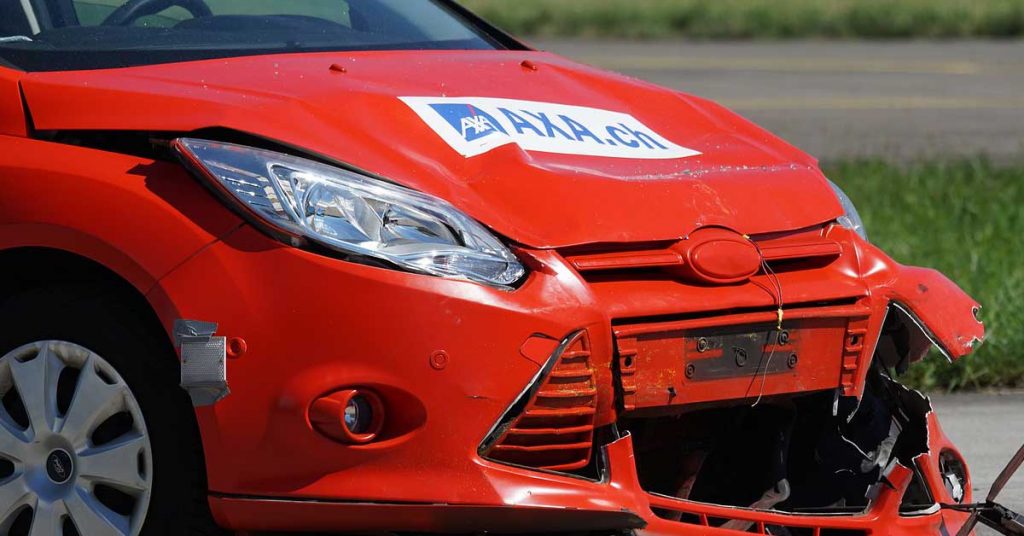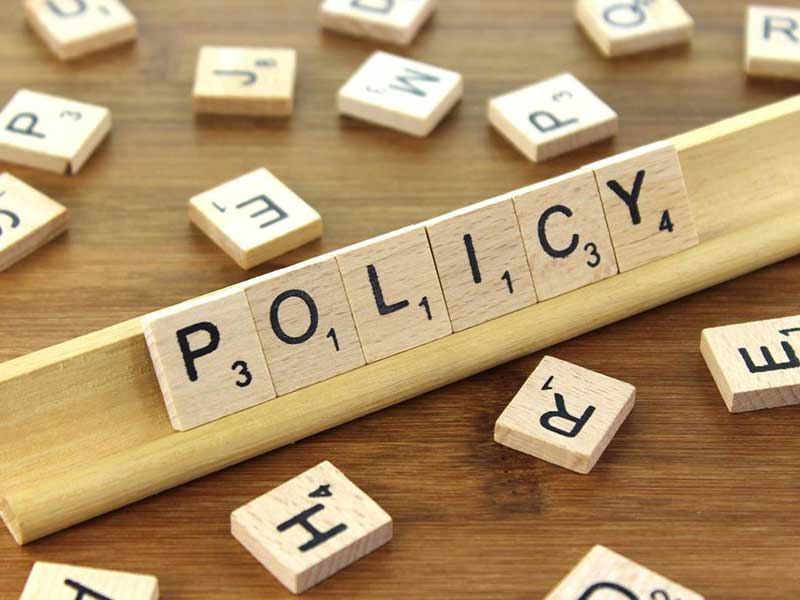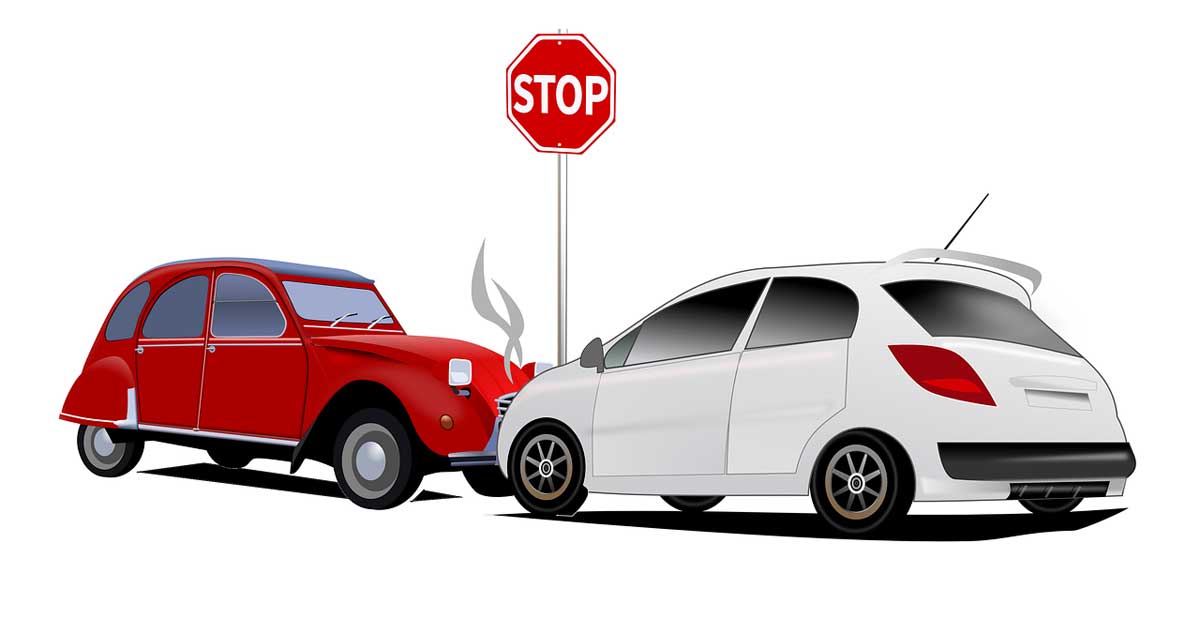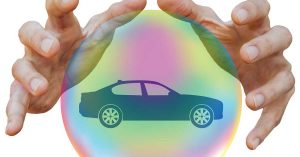Vehicle insurance is the protection you need in case you are in an accident with another car, pedestrian, or stationary object. Just as with any other insurance policy you have, you will pay a fee, or “premium,” that will cover you in case of this unexpected event. This legal agreement, between the insured and insurance company, is the promise that in exchange for a premium, the company will pay for repairs or reimbursement of coverage.
In the event that you do not have an accident, the insurance company keeps the money you have paid; however, overall, the long-term benefits of having coverage far outweigh the negative. As such, states have established minimum requirements owners must meet in order to have their vehicles on the road. Also known as car or motor insurance, it provides coverage for motorized vehicles such as boats and motorcycles.
Insurance companies assume financial risk when providing coverage. In order to minimize the amount lost by the firm, underwriters assess a person’s background to determine eligibility for an insurance policy. These professionals, working for the insurance company, look at an individual’s proposed application and decide whether the request for insurance should be granted.
Among other things, an applicant’s demographics, driving record, and credit history are factored into making the determination. The process undertaken to safeguard against risk is typically reflected in the amount of insurance for which a policyholder pays to the insurance company. New drivers or drivers with a less than perfect driving record are put into an “assigned risk” category, and insurance companies are required by law to ensure a certain percentage of these drivers. As you can imagine, such drivers’ premiums are usually very high until the driver has established a history of safe driving.
As an added protection, consumers have a variety of coverage types they can purchase. The benefits to having multiple types of insurance coverage minimize the amount of exposure or personal liability to the policyholder. Listed below are a few types of quotes a person can get:
Liability Insurance
Liability coverage is the most basic of all policies, with minimum requirements set by all states. This coverage protects the insured from being personally liable in the case when an accident was his or her fault. The liability portion of the policy will reimburse the injured party for repairs, damaged property, and medical care up to the limits stated in the policy. Should the expenses of the injured party exceed the amount stated in the policy, the insured would become personally responsible.
This is why many policyholders increase the amount of liability insurance they have in order to protect their assets. In addition, liability insurance does not protect the insured. In the case of an accident or incident, this type of insurance alone will not cover the policyholder’s expenses.
When giving vehicle insurance quotes, insurance typically includes the amount an insurance company will pay out for bodily injury (BI), total accident, and property damages incurred to the other party. Liability insurance is typically represented in the format 50/100/50, which means that a maximum of $50,000 would be paid to each person in the accident for bodily injury, with a maximum of $100,000 payable per accident. In the event that the insured damaged someone’s property, such as a mailbox or house, maximum coverage of $50,000 would be reimbursed.
Bodily Injury Liability (BI)
The bodily injury liability portion of a policy states the maximum limits a company will reimburse per person and per incident. Typically an insurance policy cannot be purchased without these two components. States have established minimum insurance liability requirements for vehicles, but in many cases these amounts are insufficient should the driver cause an accident that involves multiple people, vehicles, or substantial injuries. In some cases, these limits are out of date and have not kept up with changes in the economy, and it is a lengthy process for a state to change its liability insurance requirements.

Take, for example, a state that requires a minimum liability policy of 10/20/10. This would mean that in the event of an accident where the insured was at fault, the maximum amount that would be paid would be $20,000 for the accident, with a limit of $10,000 per person. Clearly this would not be enough to cover all expenses in a case where severe damages were caused.
Among other expenses, besides physical injury, coverage under this policy could apply to funeral expenses, legal fees, loss of compensation, and suffering. This is why many people opt to increase their insurance liability limits to an amount they can comfortably afford in exchange for protection in case of a serious accident.
Comprehensive Insurance
Comprehensive vehicle insurance is considered the protection provided for any damages incurred, other than those caused by collision. Damages such as theft, fire, weather, flood, and contact with animals would be reimbursed to the insured or other injured parties under this policy.
Although these events do not occur often, they can be devastating and costly. In the case of car theft, comprehensive coverage may not only apply to the market value and loss of your car, but to the contents within the car, such as stereo equipment, cameras, or other personal belongings. If your car is leased or financed, it might be a good decision to consider a comprehensive auto insurance policy in order to safeguard your investment.
Floods and accidents with animals are rare, but do result in expensive repairs. Comprehensive insurance will repair the damages we normally do not think about. People who live in high-risk areas where natural disasters occur often, or perhaps live in rural or urban areas, are subject to a wide range of extra circumstances.
Although this added protection is not required by states, there are many benefits to having this coverage. Comprehensive is not very expensive and usually carries a minimum deductible of $250 to $1,000. The insured must pay this deductible with each claim.
Collision
Collision insurance is another type of optional coverage and protects the insured vehicle is involved in an accident. When getting a vehicle insurance quote for collision, you will see it is subject to a deductible that might range from $100 to $1500; this money would need to be paid upfront in case of an accident. Most banks require this collision insurance on new or leased vehicles, so the added expense of this deductible should be factored in if you are carrying a banknote.
In the case of rental cars, many companies require that you purchase collision insurance or that you sign a collision damage waiver in case you have an accident while driving their rental vehicle. The advantage to purchasing this type of insurance is that if you have an accident with another car, all the damages will be paid. Should you sign the insurance waiver, be aware that you would be liable for the repairs under this agreement. Some credit card companies provide rental car coverage if the full cost of the rental was charged to the card, so it might be worthwhile for you to check what is available.
As opposed to more conventional types of insurance, a collision policy covers damages to your car in case of an accident with another vehicle or object, or provides a cash value if the car is not repairable. Insurance premiums tend to be high for a collision policy; therefore, if you have an older model car or if it is not in good condition, this type of coverage might be an unnecessary expense.
Other Coverages
Liability insurance covers bodily injury sustained to another party, as well as compensates for property damage when the insured driver is deemed responsible. Each state carries a minimum required amount of property insurance; however, all policyholders have the option of increasing their coverage for an additional charge.
One example of when this property damage policy would be beneficial is when an insured driver has an accident with a stationary object, such as a fire hydrant. Think of all the people who would have to be dispatched to shut off the water and clean up the streets, not to mention the domino effect this disaster could have on other people’s properties and homes.
No-fault insurance, otherwise known as personal injury protection (PIP), was meant to pay benefits to policyholders and sometimes passengers regardless of who was at fault. The idea behind this type of insurance was to provide quick payments to those injured in an accident, thus reducing the need for lawsuits. A PIP policy will typically cover medical bills, lost wages, and rehabilitation costs; however, it does not provide protections for pain and suffering. Many states allow drivers to choose between no-fault coverage and more conventional auto insurance.
Vehicle Insurance Quotes
In order for a car insurance company to quote you a rate for a policy, certain factors, such as your age, place of residence, and the make and model of your car are taken into consideration. Consumers should be aware that this quote is good only for a certain time period, so when shopping around for the best deal, it is important to ask how long the quote is good for, as the company is not legally bound to provide you this price after this date. Changes in the financial markets and insurance legislation are factors that affect insurance, so realize that a sudden change could affect the quoted price within a short time span.
Along with the usual questions asked to determine a quote, car insurance companies will determine the level of risk you present to the firm by providing coverage. Questions such as your ZIP code, the approximate number of miles you drive to work, and the number of people who live in your household are asked.
Once these questions are asked and the application is complete, your information is evaluated by an underwriting group who will determine a quote based on how comfortable they are with insuring you. The price of insurance can be very different between companies. To get the policy and quote that fits you best, you should compare car insurance quotes online. This fast, safe, and easy way to compare policies is a good way to shop around and get insured immediately.
Understanding the Vehicle Insurance Policy
After you have shopped around for vehicle insurance quotes and decided what type of coverage you need and the company in which you would like to make the investment, it is important to understand your policy, what you are paying for, and how it can work for you. Make sure that your conversations with your insurance agent were documented, so that once you receive your policy, you can review the terms of the agreement and verify that what you discussed has been included in your insurance policy.

Ultimately, your insurance policy is the legally binding document that states what the insurance company is responsible for. If a certain provision, time frame, or dollar amount is not stated in this document, the insurance company will not be liable should you file an insurance claim. If you are unsure about the language written in your insurance policy or if a stated agreement has not been included in your contract, you should call your insurance agent immediately to discuss.
Once you have entered into the contract, most companies will allow policyholders to review their policy for a period of 10-30 days and cancel and receive a refund on the new insurance if they are not completely satisfied with the terms of the agreement. Policyholders should keep a record of all of their receipts and checks if they decide to cancel the policy.
In its most basic terms, the vehicle insurance policy will state the terms and length of the contract (for example, one year or six months), effective dates, premium amounts, and deductibles, if applicable. The policy will identify the insured’s name and the make and model of the motor vehicle being insured. Then, because each state requires a minimum amount of required liability insurance, each policy will identify the agreed upon amount. If additional coverage was purchased, the terms of this agreement would be included in the contract as well.
Insurance Policy Glossary
Some important terms you’ll need to be aware of when shopping for a vehicle insurance policy:
Accident
An accident is an unexpected event that occurs, which might or might not result in injury or damage. This unintentional incident could be caused by a vehicle or could involve nonphysical items, resulting from action from a person.
Additional Insured
Additional insured insurance is considered coverage extended to parties that are not considered the primary insured, such as employees, contractors, and subcontractors. This extra added protection provides a temporary level of security under the terms of the contractual agreement.
Assigned Risk
Persons who are in the assigned risk pool are considered parties not eligible to receive insurance under the conventional process and therefore present a higher level of danger or threat. Insurance companies are required to ensure a certain number of assigned risk persons, whose premiums are typically at a higher rate.
Competitive Estimate
Potential purchasers of insurance can shop around for competitive estimates in an effort to secure best pricing for their insurance. Through a series of preliminary questions, companies are able to provide an approximate cost, based on market value.
Deductible
A deductible expense is considered out-of-pocket money that an insured person must pay before an insurance company’s policy will begin. The amount of this expense is clearly stated prior to engaging in the contractual agreement and protects the company from paying out small claims.
Exposure
The amount of time and level of intensity a person has come in contact with a person, event, or substance is measured in terms of exposure. The term exposure typically refers to contact with circumstances or events that are deemed harmful.
Exclusions
An insurance policy may identify exclusions or exceptions to the plan, which are the conditions in which the coverage will be denied. Provisions excluded from a policy are deemed high risk to a company and are eliminated from the standard clause.
Hazard
The risk that could cause harm to people, property, or to the environment is considered a hazard that might result in injury. Fire, floods, and earthquakes are considered hazards, and insurers can purchase added protection in the form of a hazard insurance policy.
Liability
Liability insurance is the type of coverage that will pay for damages that were caused by the insured. Liability car insurance is required in most states and does not cover the insured or the insured’s car.
This provision bears the financial responsibility or property and/or injury of others in an accident when the insured is at fault.
Indemnity
Indemnity is the protection from loss and damage claims filed by another person or entity. An indemnity plan compensates the insured and removes all personal liability in the event that an unexpected claim is filed.
Premium
An insurance premium is a money paid to an insurance company, at an agreed-upon frequency, amount, and term to relieve the financial burden of the insured should the loss of property or personal injury occur. Depending on the type of policy the insured holds, the premiums will typically be higher for those people who are considered of higher risk.
Rider (Endorsement)
A rider or endorsement is an added provision to an insurance policy that changes the original terms, coverage, and conditions. This added protection can provide the insured with changes to the benefits or premiums.
Beware of Vehicle Insurance Scams
Vehicle insurance fraud is the willful intent to deceive or falsify information to a firm; the cost is millions of dollars to the industry, a cost passed down to the consumer. Most people have heard of accident and theft fraud; however, other areas of fraud are application fraud, when a person lies on an insurance application, and non-existent vehicle fraud, when a person insures a car that does not exist and then files a stolen claim.
If you suspect that someone you know is responsible for filing a false vehicle insurance claim or if you find a car that appears to have been abandoned, you should report it immediately to the local police or call the National Crime Insurance Bureau at 1-800-TEL-NICB. Provide all relevant information to these sources and remember that all calls are anonymous.
Here are a few ways to reduce your risk of being involved in a vehicle insurance scam. If you are in an accident, make sure you take a picture of your car and the other vehicle. Use your cell phone if necessary; a photograph will be the proof you need in case the other party tries to file a more extensive claim. If there were multiple passengers in the car, take note of the number of people and try to get their names. Lastly, be careful of cars that are intentionally trying to cause havoc on the road. Fraudsters think of all kinds of creative ways to cause an accident and shift blame to you.
How to Find a Good Car Insurance Agent
There are many ways to purchase vehicle insurance, including directly from a company, online purchasing, or through a vehicle insurance broker. As with any other situation, where you might encounter the need to engage the services of a broker, a fee is paid for the broker’s expertise. If you do not have the time to comparison shop, using a broker might be your best bet. But how do you find an insurance agent who will work in your best interest? Here are a few ideas to help you choose:

- First, find an agent who listens to you and can respond to your needs. It is important that you feel comfortable with the advice you are given. A good agent will ask a lot of questions to make sure you are given the coverage you need.
- Check the professionalism of the office staff and don’t be afraid to ask for references. There are usually indications if the culture of the firm might not suit your personality. If any “red flags” appear, you probably won’t be happy with your investment. Ultimately, you are paying for a service, and you should be provided with assurance that they can deliver on what is expected. When purchasing vehicle insurance, the background research you do can save you time and money in the long run.
- Insurance brokers might sell policies for more than one company. Determine what type of agent will work best for you. Do you prefer one insurance company’s products over another’s? Is the agent trying to sell you a product that meets your needs, or one that is unnecessary? It might help for you to do some comparison shopping on your own so that you know whether the agent is offering you competitive pricing.
- Is your agent new to selling vehicle insurance or a seasoned professional? Once you have identified one or two agents you are interested in doing business with, check with your state’s insurance department to make sure they are up to date with all licensing, and check to see whether any consumer complaints have been filed.
- Keep in mind that in many cases the person who sold you your homeowners or renters insurance can also provide car insurance, and it’s likely you’ll get a discount if you purchase as part of a package. So always ask about vehicle insurance when getting renters insurance quotes or looking for homeowners policies.
Questions to Ask Your Agent About Vehicle Insurance details
When researching vehicle insurance quotes to find the best price and policy, there are a few questions you should ask your agent in order to make the comparison. Questions like “How will I get in touch with you?” and “Does your company have a website?” will give you an idea of the level of service you will receive if you become a policyholder. Once you have narrowed down the companies you are interested in, you can ask these additional questions to help you make the best decision.

What does this policy cover? What does it NOT cover?
Like any other purchase you make, deciding on an insurance policy will require a certain level of time, research, and patience in order to make the best choice. For the most part, basic liability and collision insurance will offer the same protection company to company; however, there could be additional benefits included in a policy.
Ask your agent if your policy includes any discounts on safety features, such as car alarms, airbags, or antitheft devices. Comprehensive or collision policies provide coverage if a car is totaled; however, you should ask whether your policy might not pay for original manufacturer parts for a car.
Are there discounts available for multiple vehicles?
One way to save money on car insurance is to see if the insurance providers will offer you a discount if you insure more than one vehicle. Some companies will offer a multi-policy discount if you insure multiple vehicles or if everyone in your household is under one policy or when all your items, such as your home, car, boat, etc. are combined under one company. Check with your insurance agent to see whether your policy is eligible.
How are claims processed?
In the event of an accident or the need to file a claim, it is always good to know the process in which you will have to go through to file a claim. Check with your agent on the approximate number of days it should take from the time you file the claim to the time it will take to resolve it. Many companies are promoting their quick and efficient turnaround time, so it would be wise to know how the insurance claims are processed.
How can I decrease my risk (and therefore my premiums)?
The premium an insurance company charges you is based on many factors, including your demographics, lifestyle, and associated risk. If you think that you are paying too much for car insurance, ask your agent if you could save money by taking a defensive driving course or attending a driver’s education training, or about the effect of an improved credit score.
What is your customer complaint rate?
A good gauge of a solid insurance company is how they keep records of their complaints. If your agent does not know how to answer this question, you can check with your state insurance department to see whether they keep a record of complaints or go to the NAIC Consumer Information website for more information.
FAQ About Vehicle Insurance

What type of vehicle insurance do I need?
State laws require certain minimum levels of coverage with which all drivers must comply; however, these minimum amounts are usually not sufficient protection. Listed below are the more common types of vehicle insurance coverage. It is important to know what you will need before you start shopping around for the best price.
Liability
Liability insurance is the protection you need to cover another person’s injuries or lost wages if you are responsible for the accident. It is important to know that this coverage does not apply to your own injuries and the minimum amount a state has set is typically not sufficient to cover all expenses in the case of a serious accident.
Collision
Collision insurance covers damage to the policyholder’s car if you are in an accident that involves other vehicles or stationary objects. The insured will decide how much insurance to buy and the amount of a deductible. In the case of an accident, the deductible is subtracted from the bill, and the insurance company will pay for the rest of the repairs. Collision insurance is beneficial to owners of new or leased vehicles, because it is costly and generally applies to the cash value of your car.
Personal Injury
Personal Injury insurance, or PIP, covers the insured in the event of an accident resulting in medical, hospitalization, and/or funeral expenses. It can be a good supplement to a regular health insurance plan or other policy. Personal injury insurance is considered a “no-fault” policy, which means that coverage will be paid out no matter who is at fault. This type of insurance can be costly. The premiums do not increase in the case of filing a claim.
Full Coverage
The idea of a full-coverage policy is that it provides a combination of liability, collision, and comprehensive protection. Of course this type of policy offers protection for almost anything that could happen to a car owner; however, it is not required by law, and many people do not buy the full insurance because of its high cost. Despite the many benefits a policy of this type can offer, it is not for everyone. Car owners should shop around and inquire about discounts and other ways to reduce costs.
Uninsured/Underinsured Motorist
One type of insurance that is not common but very beneficial to a policyholder is Uninsured/Underinsured Motorist coverage. This coverage protects you from drivers who are driving without insurance. Nowadays, many people are looking for ways to save money, and many drivers on the road are driving without coverage. In the case of an accident with an uninsured vehicle, you would have to pay any medical expenses or vehicle repairs out of pocket.
Extra Coverage
Roadside assistance
Roadside assistance is coverage you might not need but that provides added protection in case of a flat tire, need for a battery jump, emergency towing, a locksmith, or fuel. To add this coverage to your policy is very inexpensive and could easily pay for itself, with just one emergency response. Before purchasing this added coverage, it is wise to check other policies and credit card companies to make sure you do not already have roadside assistance included as an added benefit.
Is vehicle insurance expensive?
The cost of vehicle insurance can vary company by company—that is why it is important to compare insurance rates. The best way to save money is to compare car insurance. Typically newer, flashier cars are more expensive than family vehicles, and policies with lower deductibles cost more than policies with minimum coverage and high deductibles.
Personal credit scores also factor in the price you pay for car insurance, with insurance companies making a correlation between creditworthiness and responsible driving.
How does vehicle insurance work?
Vehicle insurance is like any other insurance: the insured pays a premium to a company to provide coverage in the case of an unexpected event or accident. The premium that is paid reflects the type of coverage and policy the insured has. Most states require liability insurance that will cover damages to another person, whereas collision insurance protects the insured even if he or she was at fault or gave the car to someone else to drive, and comprehensive insurance protects other types of damage, such as theft and vandalism.
Should any of these events occur, a claim is filed with the insurance company and a claims adjuster is sent out to provide an estimate of the damage. At this point, the insured is reimbursed based on the amount of damage assessed.
How do I determine how much vehicle insurance I need?
The amount of vehicle insurance you need varies by state. Each state has a minimum (or no) requirement for liability. It is recommended that you purchase more than the minimum because if you have an accident and it is your fault, the minimum coverage might not be enough to pay for all the damages. The injured party could try to sue you and recoup money from your personal assets; however, if you do not have many, then you might not need to worry about purchasing a lot of insurance.
It is helpful to know the provisions you have under other policies in order to determine what you need. Some health insurance plans cover personal car injuries, and some insurance policies cover roadside assistance in case of breakdown. Make sure you are aware of the types of insurance you have, under every policy, so you do not end up paying for something you do not need.
What is the minimum for vehicle insurance?
Each state sets a minimum amount of required car insurance. Liability insurance in one state can be drastically different in another and typically is represented in the following manner:
25/50/25, with the first two numbers representing $25,000 to each person injured in an accident, with $50,000 being the maximum amount per accident. The last number represents total coverage per accident for property damage, which in this case would be $25,000. In the event that the damages exceed these amounts, the insured can be sued for the rest of the money.
Does vehicle insurance have to be with the same company as my other insurance?
Insurance policies and rates vary from company to company; therefore, your vehicle may be insured by a different carrier than some of your other policies. In order to save money, some companies will offer a multi-policy discount if everyone in your household is under one policy or when all your items (home, car, boat, etc.) are combined under one company.
What questions will my agent ask me when I call?
In order to obtain insurance coverage, an agent will ask you a series of questions to determine a price for your policy. These questions can range from your age, place of residence, the year and make of your car, the approximate mileage you drive per year, the number of people who intend to operate the car, the number of years you have been driving, and how much of a deductible you would be willing to pay in case of loss or damages. Other questions that might be asked are the number of moving violations and accidents you have had within the last five years.
What does the rating system mean, and how can I find out how my insurance company is rated? A, A+, A++? (www.ambest.com)
When shopping around for life insurance, it is good for you to know the financial rating of the prospective firm before making your investment. These companies are typically rated by four well-respected agencies, which are Moody’s, Standard & Poor’s, Fitch, and A.M. Best. The ratings will let you know if the firm is financially strong, good, or weak. The reason why these ratings are important to you is that they can help you make sure that the company is financially viable should you need to rely on insurance funds for yourself or your family to replace income.
Ratings are typically represented using letters, from A+ or AAA (meaning a company is able to meet its financial obligations) to F, which indicates that the company is in distress. A letter rating of B or better is advisable to consider for investments. Remember to check not only the rating but also the date this rating applies.
What Factors Affect My Insurance Rate?
With millions of people driving on the road each day, vehicle insurance companies try to minimize the amount of risk they take by insuring the less risky drivers and charging higher premiums to those who pose a greater danger on the road.
- Factors that affect the premium you pay depend on your physical address, with a city location considered riskier than a rural area or suburb, as well as the car you drive and the distance you drive to work.
- Your demographic group will say a lot about your potential risk to a firm, with females typically paying less than their male counterparts, with teenage boys playing the most. The rates for youth between the ages of 16-18 years are the highest, with individuals up to age 25 and over 65 years of age placed in the top-risk category.
- Vehicle insurance firms charge married couples less.
- The level of education you have and your occupation could also affect your rate. Of course, the number of years you have been driving and your overall driving record will determine how responsible you are on the road.
- Although insurance companies say that credit history does not impact your premium, it can have an effect on whether they want to insure you or not. And, of course, premiums are higher for cars of a certain make, model, and year, with newer vehicles being the most expensive.
- The installation of certain devices in the car will reduce your rate, with antitheft, antilock brakes, and airbags saving you money.
Also Read The Article: Factors to Consider When Purchasing Vehicle Insurance
How to Negotiate the Best Rate for Vehicle Insurance

What many people do not know is that insurance companies might be willing to offer you a more competitive rate, if you do your homework and come prepared to negotiate best pricing. They want your business; however, there are a few things you need to do to get a better rate.
First of all, take the time to call many providers and get vehicle insurance quotes from more than one company. This information will provide the ammunition you need to negotiate with other providers. Within minutes, you can get online multiple quotes on affordable car insurance companies and policies.
To save time, make sure you are ready to provide all the information necessary to get a fair and accurate quote. Insurance companies will be ready to make a deal if they have answers to all their questions, such as your driving history, credit scores, and your vehicle make and model. Try asking for a multiple car discount for everyone in your household and be prepared to provide this information as well. Many students and working professionals get a reduced rate, so see if you qualify for any of these discounts.
Once you are prepared with the information needed to complete an application, it is wise to become familiar with the vehicle insurance product offerings and the terms commonly used. This research will provide the background you need to ask intelligent questions and purchase only what is needed. Check to see whether the insurance company might provide “add-ins” to your policy, such as roadside assistance or legal services, at no extra charge. You might even be able to negotiate cheaper premiums or flexible periodic payments.
The premiums you pay for coverage will vary by provider. If you are considering rates offered through indirect car insurers, remember that there are fees associated with these services. These hidden fees, although seemingly invisible, are usually included in the quote provided. If you choose the route to vehicle protection, be sure to compare rates provided through a direct car insurance agency and discuss the benefits of working through indirect sources.
Car insurance companies want your business and are very happy when you can provide referrals. These valued leads could save a company hundreds of dollars in marketing and advertising, and they are willing to pass some of these savings along to a current policyholder. Ask friends and family members which insurance companies they prefer and then call your insurance company to see how much you could save by bringing them, new customers.
How to Keep Your Premiums Low
In these hard economic times, everyone is looking for ways to save money, and reducing costs on your vehicle insurance is one way to put extra money in your pocket. Here are a few tips on how to keep your vehicle insurance premiums low:
- Ask your insurance company for the discounts they provide. Some providers will reduce your premiums if you have an antitheft device installed, as well as provide a more favorable rate if you insure more than one vehicle with them or combine various insurance policies under their umbrella. Insurance companies like to receive your payments on time, so if you set up an electronic payment schedule you are likely to receive a discount as well.
- The effective dates and number of months in the terms of your policy can impact the rate you receive. You will pay less for a one-year policy as opposed to a six-month, and if you can afford to pay the entire policy in full, this is probably best.
- Many companies, credit unions, and organizations offer their members a group discount. Find out whether any of your affiliates offer group vehicle insurance discount rates.
- If you have a car that is driven only at certain times of the year and stored the rest of the time, you might be able to pay for only comprehensive coverage during this time period.
- Don’t let other people drive your car. If an accident occurs, your premium will go up. In the event that an accident does occur, another way to keep your premiums low could be to pay for the repairs out of pocket if the damages are minor.
- Insurance companies like to reduce their risk of paying out money on claims, so if your car mileage is low, they might be willing to reduce your payments.
- Choose the highest deductible you can reasonably afford. Why pay a higher premium on insurance you might, with luck, never use?
Is the Article: Vehicle Insurance Details! All You Need To Know About Vehicle Insurance if help full? Please comment below.


